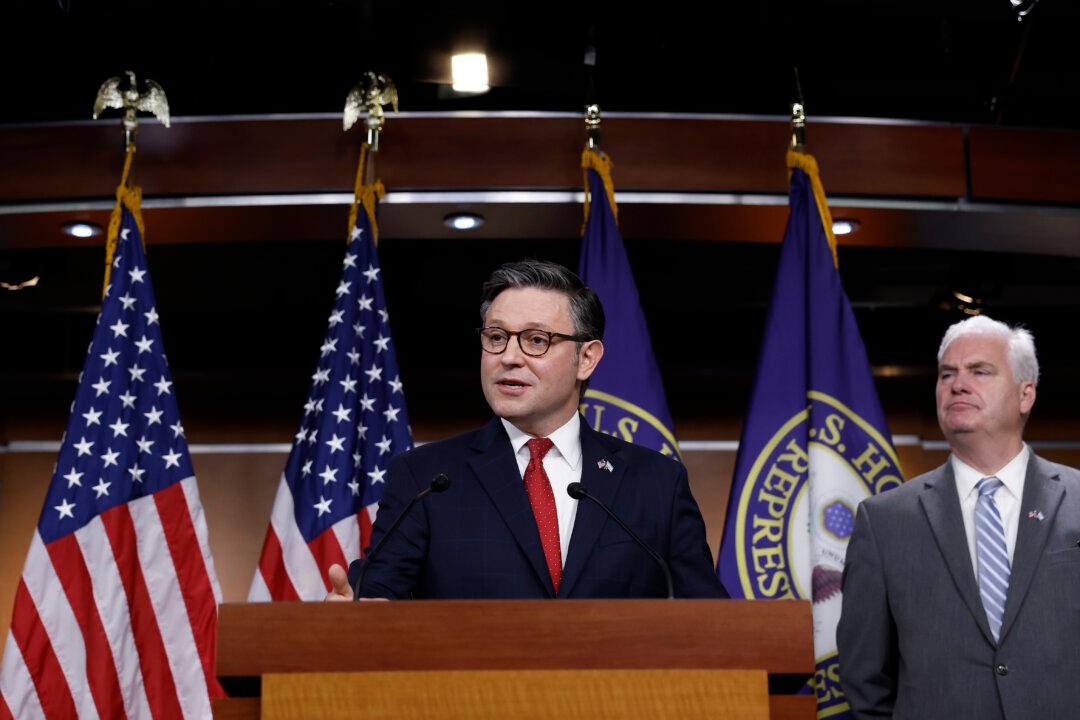House Republicans handed Rep. Mike Johnson (R-La.) a legislative loss on Nov. 15 by blocking consideration of a spending bill just one day after approving a stopgap funding measure to keep the government open into next year.
Eighteen Republicans joined 207 Democrats in torpedoing a procedural vote on legislation that would fund the Commerce and Justice departments and other agencies for fiscal year 2024.






